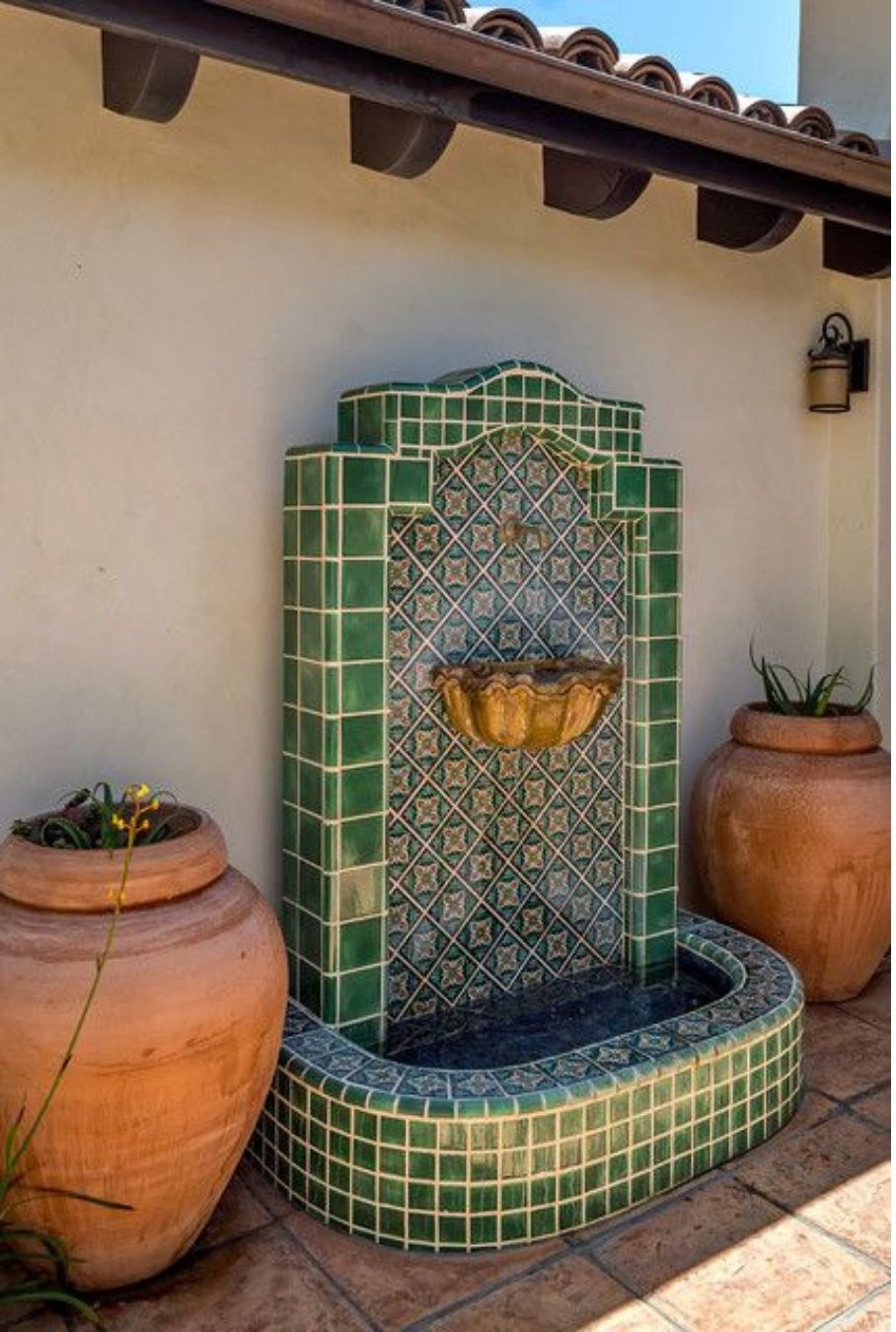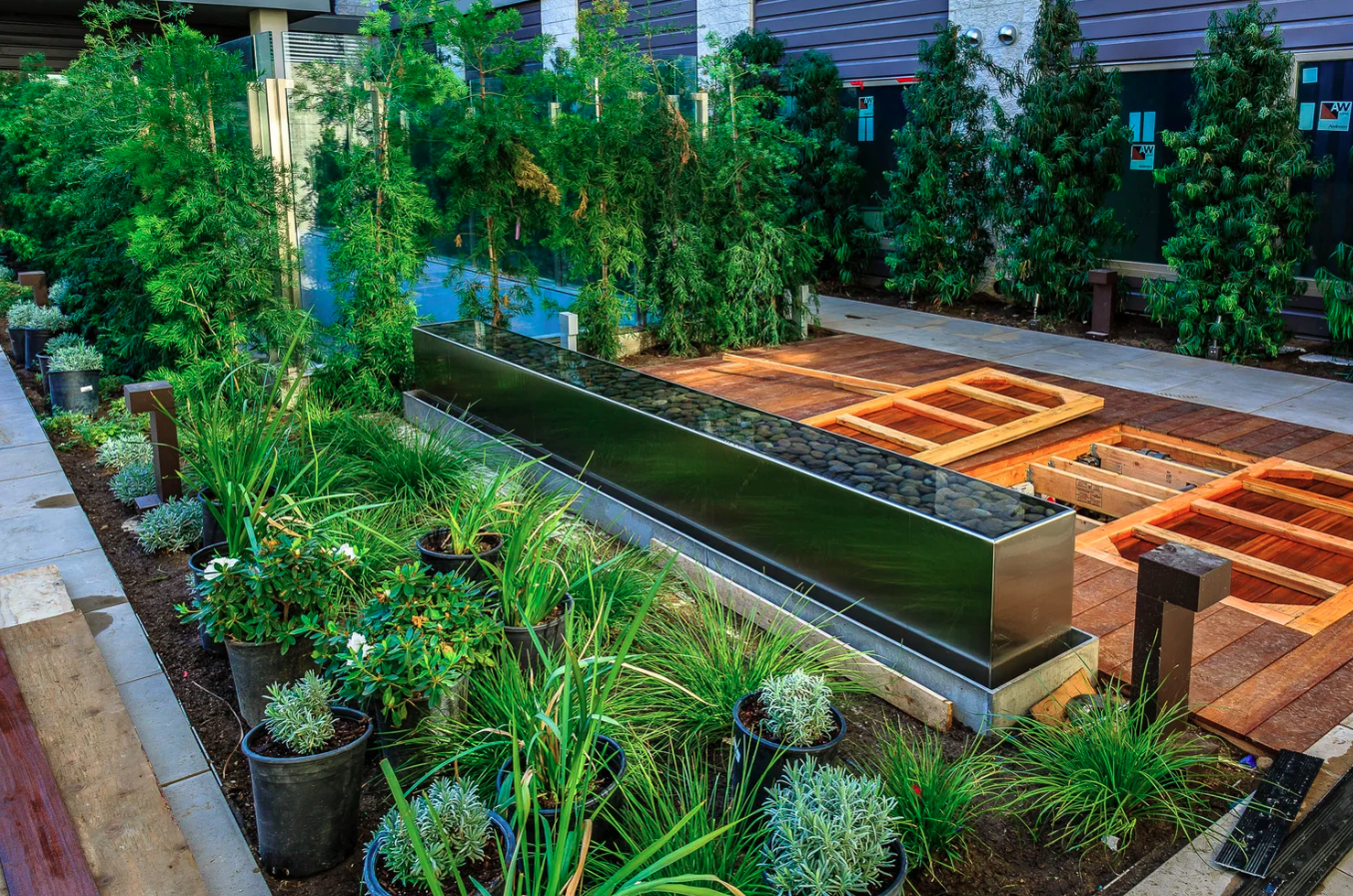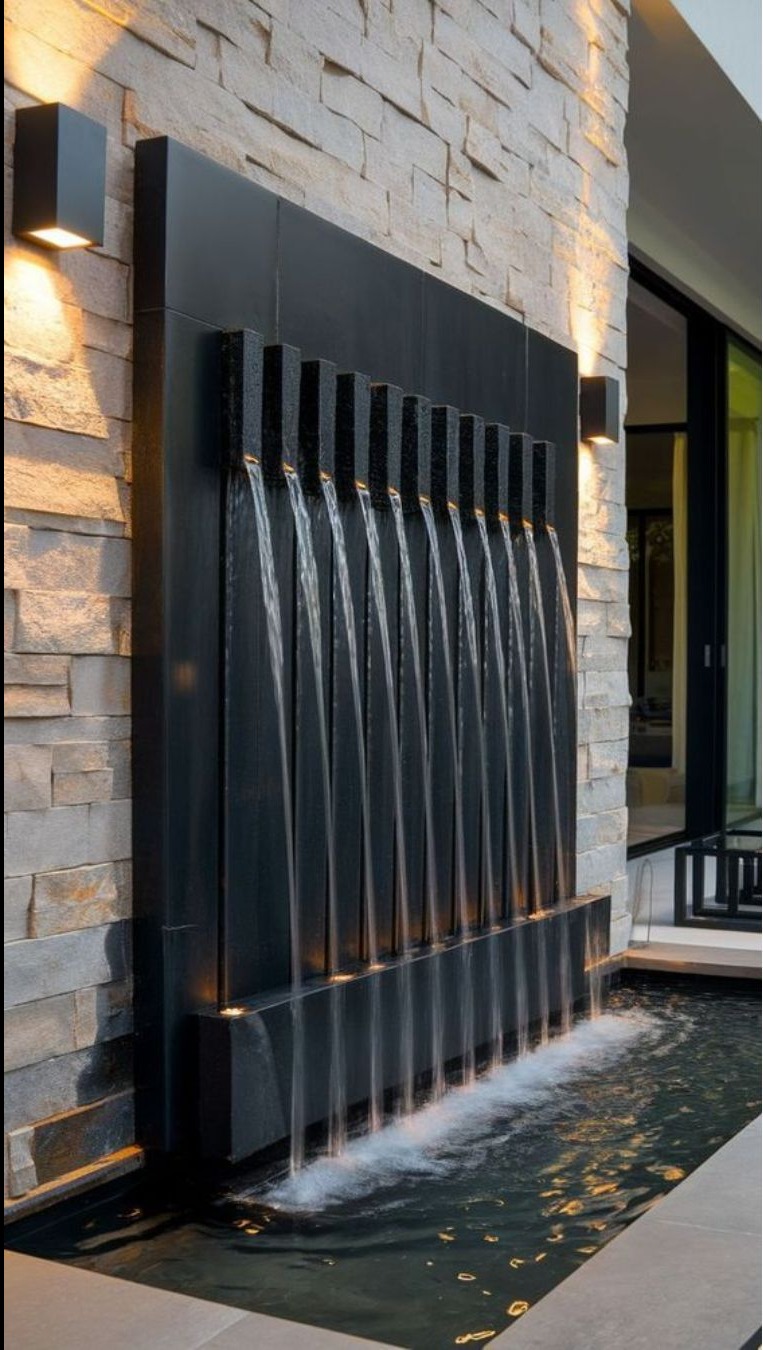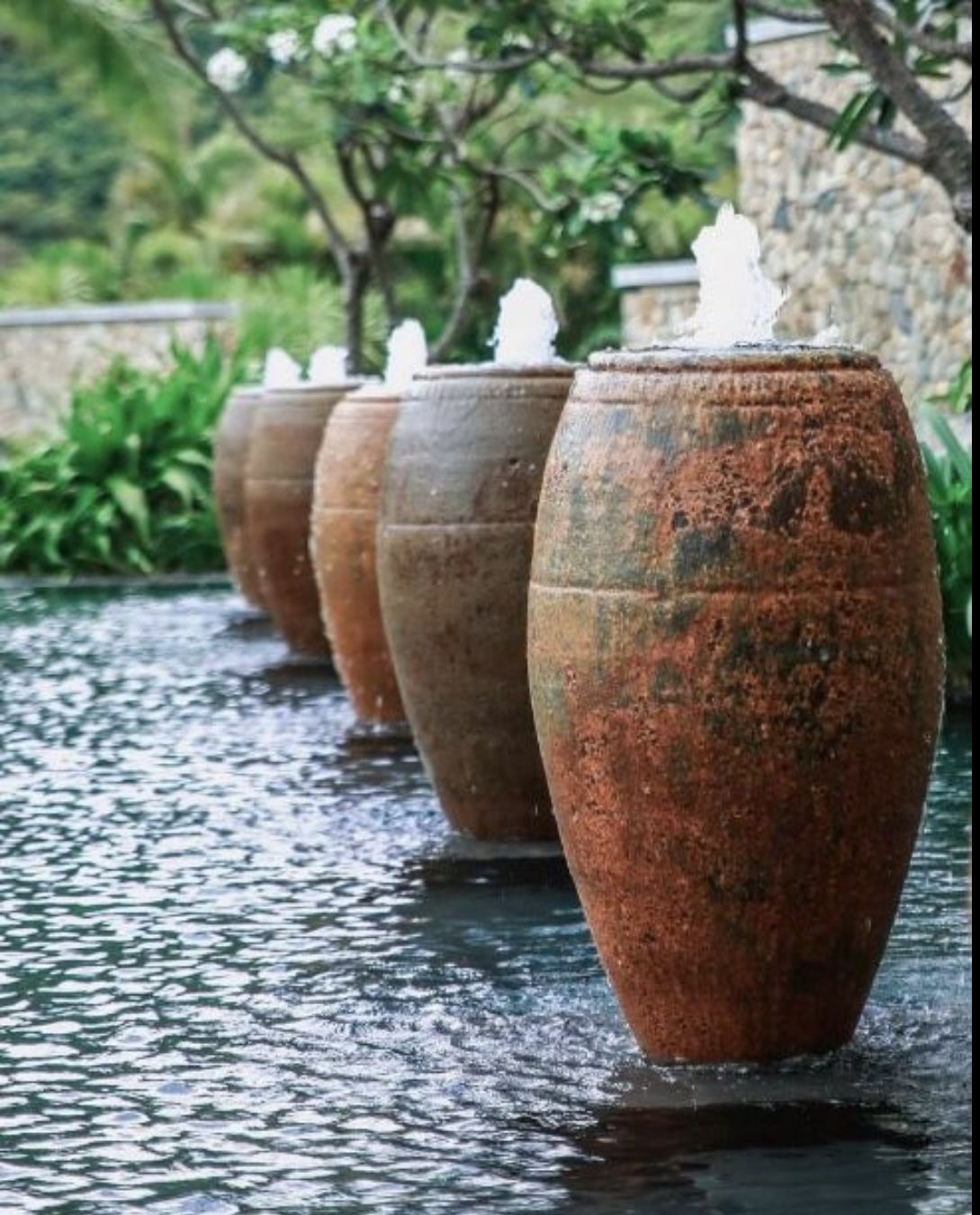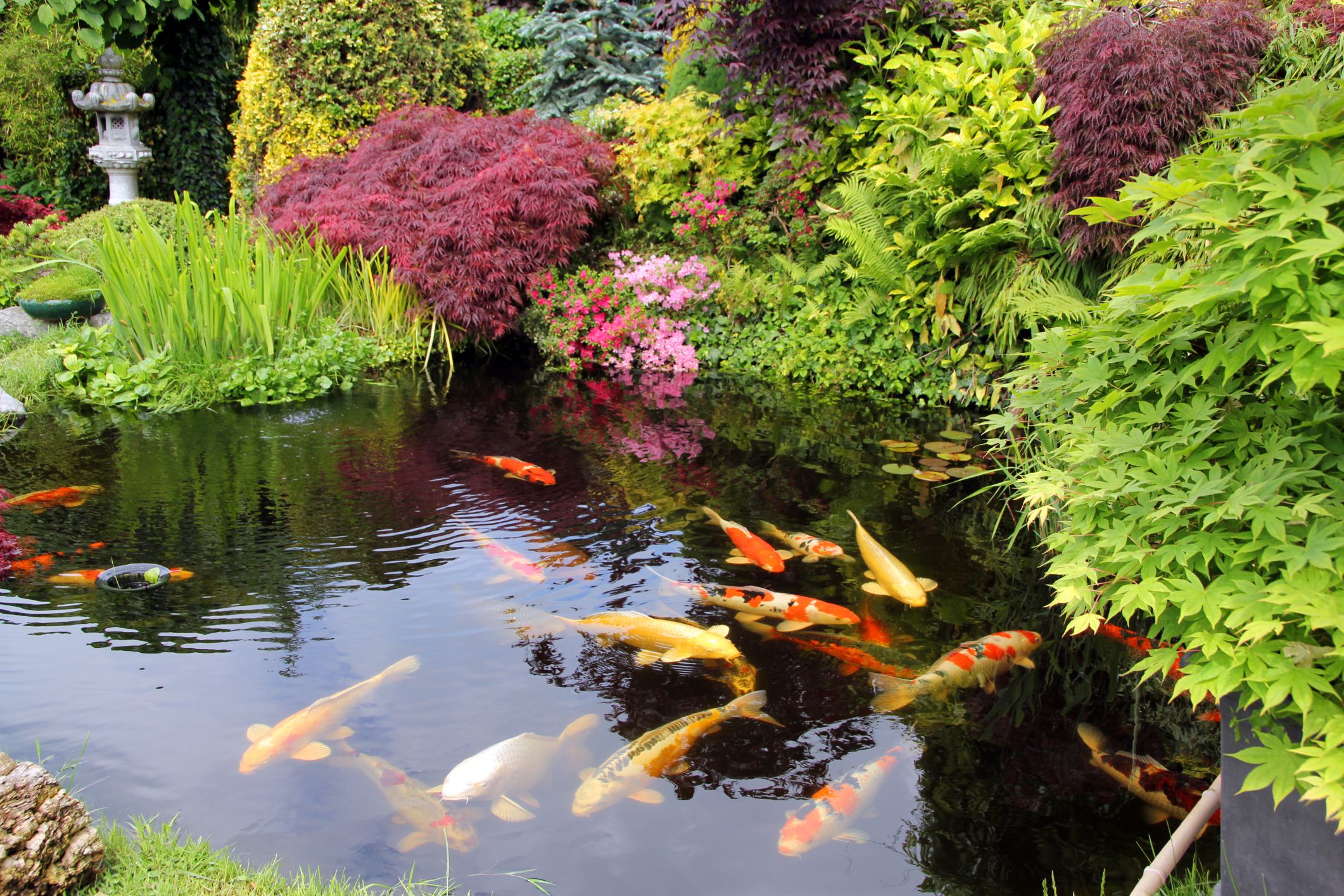
Ponds come in various different forms. They serve different purposes by the nature of how they exist. In their most basic form, they are simply a body of still, freshwater. Usually, their purpose is dependent on what can be found within them. Most people are most familiar with garden ponds. However, even these come with their own categories. From a wildlife pond to a general fish pond to an even more specific koi fish pond.
Man-made natural ponds can be considered to be natural in the sense that they don’t require pumps, filters or chemicals to be maintained.
They rely on the water, soil (although the pond may possibly have a pond liner to keep the water inside), plants and animal life to co-exist. Creating the ideal environment for the natural pond Eco-system to be in balance.
With this definition, it’s easier to understand how the definition of a natural pond can be extended to include a man-made pond.
Natural ponds don’t need a filtration system to keep the water clean. This is where it becomes important to consider whether a natural man-made pond uses a pond liner or not.
While ponds with a liner are still considered natural, pond liners, in general, are artificial. Thus they can disrupt the state of harmony between the water, plants and aquatic life.
Therefore this can mean that having a pond liner is a natural man-made pond causes it to be more prone to the build-up of dirt (sludge) and odours.
Despite this, there is a major benefit to having a natural man-made pond over a more artificial pond. The abundance of micro-organisms in natural ponds should result in a naturally occurring cleaning system that aims to maintain itself. This is provided there are sufficient amounts of soil, rocks and plants present within the water to lessen the burden of artificial maintenance. Think pumps/filters, UV lights and other maintenance accessories, which are often quite expensive.
Another consideration within natural ponds is the aeration system. Natural man-made ponds tend to have an inadequate amount of plant life and micro-organisms such as beneficial bacteria to prevent the build-up of dead matter, animal waste and other organics. This, combined with low oxygen levels (because of the lack of plant life) creates the optimum living conditions for ‘bad’ bacteria who thrive in water conditions we would consider unhygienic and unpleasant to keep.
Keywords
lack
soil
body
dirt
sense
rocks
pumps
state
plants
liners
nature
burden
sludge
odours
balance
filters
harmony
build-up
naturally
UV lights
abundance
chemicals
basic form
plant life
pond liner
definition
categories
freshwater
animal life
dead matter
Most people
garden ponds
animal waste
aquatic life
bad’ bacteria
consideration
wildlife pond
major benefit
other organics
aeration system
artificial pond
cleaning system
micro-organisms
water conditions
inadequate amount
ideal environment
general fish pond
low oxygen levels
different purposes
sufficient amounts
beneficial bacteria
natural man-made pond
artificial maintenance
Man-made natural ponds
specific koi fish pond
various different forms
natural pond Eco-system
optimum living conditions
other maintenance accessories

